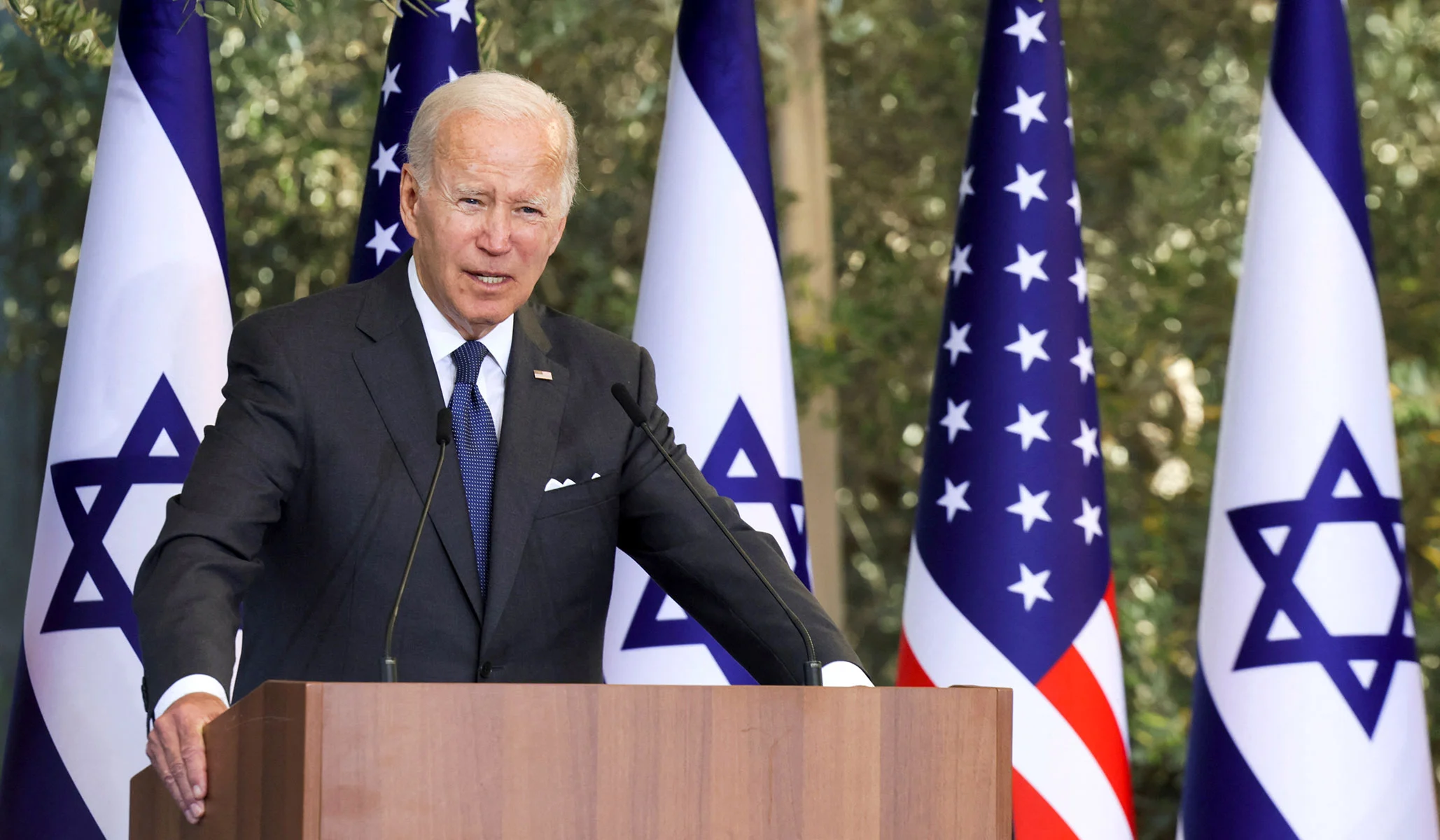President Biden, 80, is among the last of the Democrats from a generation that was supportive of Israel. Other members of this group include Bill Clinton (76), Nancy Pelosi (83), and Steny Hoyer (84). They grew up during the 1940s and 1950s, witnessed the wars of 1956, 1967, and 1973, and saw Yasser Arafat lead terrorist attacks while rejecting every offer of peace.
During the 2021 clashes between Israel and Hamas, President Biden reiterated his commitment to Israel’s security, stating, “There is no shift in my commitment… to the security of Israel, period.” In 2022, he received the Israeli Presidential Medal of Honor and declared, “As long as we’re the United States, you will never, ever be alone.” However, the upcoming deal with Iran raises concerns about the United States abandoning its allies.
The informal agreement, as described in the press, involves Iran agreeing to stop targeting American soldiers in Iraq and Afghanistan, releasing American hostages, and limiting uranium enrichment to 60%. In exchange, the United States will unfreeze between $15 billion and $20 billion and allow Iran to export oil despite U.S. sanctions. When Trump left office in January 2021, Iran’s accessible reserves were around $4 billion. Today, they are ten to twenty times that amount, mostly from oil sales that the Biden administration allowed by not enforcing U.S. sanctions.
The agreement appears aimed at protecting the United States and the Biden administration. American soldiers in Syria and Iraq, as well as American visitors to Iran, will be temporarily safer if Iran keeps its promises. However, the Trump administration secured several hostages’ release without paying a cent, and the United States froze the Iranian nuclear program in 2003 when it attacked Iraq. It is reasonable to question whether paying more money is the best response to hostage-taking, attacks on American service members, and nuclear blackmail.
Above all, this agreement allows President Biden to avoid confronting an Iran steadily moving toward nuclear weapons before the 2024 U.S. election. However, this decision has come at the cost of abandoning Israel and other American allies in the region vulnerable to Iran. The deal contains no limits on Iran’s missile program, conventional arms sales, or support for terrorist groups like Hezbollah, Hamas, and Palestinian Islamic Jihad (PIJ).
Iran’s strategy of encircling Israel by arming proxy groups in the West Bank, Gaza, Lebanon, and Syria is not constrained by this deal, and Iran will have more cash to fund these efforts. The agreement also makes it more challenging for Israel to strike at Iran’s growing nuclear program, as the administration will argue that with enrichment capped at 60%, there is no imminent danger. Meanwhile, Iran can improve its enrichment capabilities and continue secret work on a warhead.
This agreement reflects the Biden administration’s and America’s decades-long unwillingness to confront Iran over its behavior, which has included killing Americans. There are other possible responses to hostage-taking, such as demanding or striking Iran until it stops. A military deterrent could also prevent Iran from producing a nuclear weapon if the Iranian regime believed that the United States would follow through on its promises to prevent Iran from obtaining one.
President Biden, a strong supporter of Israel, wishes to follow the path blazed in the JCPOA in 2015, which was opposed by Israelis of the Left and the Right. The JCPOA paid Iran billions to slow down its nuclear program while allowing it to wreak havoc across the Middle East. It was a poor bargain in 2015 and an even worse one in 2023.

